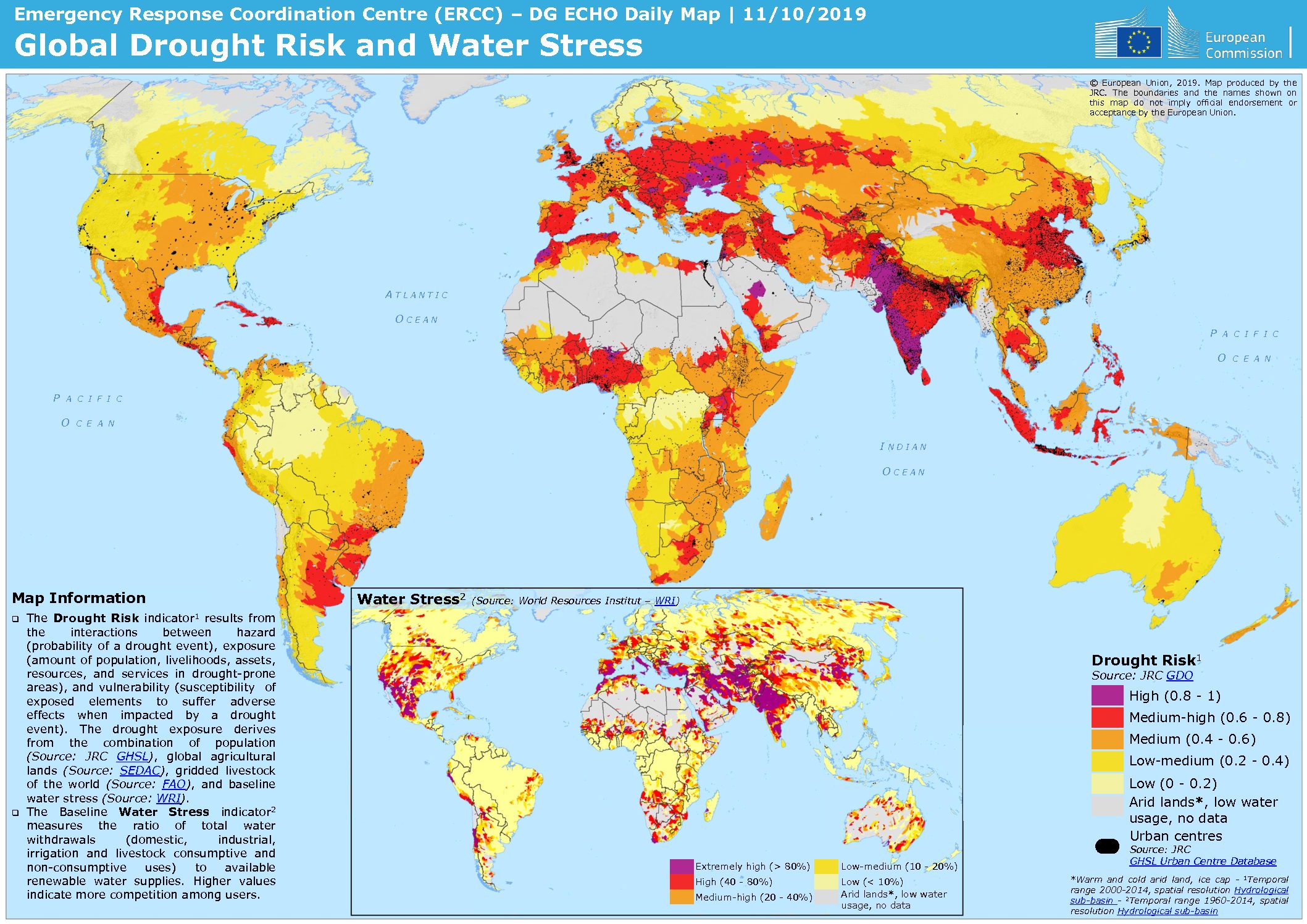As the number of reported cases of COVID-19, or “Coronavirus”, continues to proliferate around the world, governments have enacted a number of policies intended to mitigate the worst impacts of the virus. These measures range from quarantines / lockdowns, social distancing and temperature checks in public places, to expanding public welfare programs.
Well-designed as these measures are, they are largely responsive to the immediate conditions created by COVID-19, rather than the proactive steps needed to address the long standing global challenges that Coronavirus will undoubtedly exacerbate. Against the backdrop of Coronavirus, communities around the world continue to deal with ever-increasing climate temperatures – and the impacts associated with them.
One byproduct of this — inadequate access to water supplies, is especially concerning in this moment. The centrality of water to safe and healthy living conditions cannot be overstated. Access to clean water is essential for growing plentiful crops, maintaining basic hygiene, and much more.
Unfortunately, droughts have already begun to take their toll in some countries, where farmers have been hit particularly hard. Right now, food workers, such as farmers and grocers, are essential workers, that are working to keep their fellow citizens fed at great personal risk. Drought conditions would disrupt the fragile systems in place keeping people well-nourished during this time. The World Food Programme (WFP) estimates that roughly 265 million people around the world are under threat of acute hunger due to a number of factors, including extreme weather shifts which create the conditions for droughts.
Before the outbreak of COVID-19, drought levels were most largely concentrated in marginalized and impoverished regions around the world e.g. Central America, Eastern Europe, North Africa and the Indian Subcontinent (see image above). In 2019, 9 out of the 10 countries with the worst food crises experienced mid-high levels of drought risk. With the virus’s continued spread, the food shortages caused by inadequate access to water can only worsen.
Water also plays a direct role in the World Health Organization’s (WHO) recommendation for handwashing hygiene to prevent COVID-19 spread. Their recommendation is to use alcohol-based hand rubs, along with soap and water (preferably warm). Take for example, the case of India, where roughly 33 percent of the country is already in the midst of a drought. The lack of water threatens to cause an uptick in cases in India at any time, despite the currently low fatality rates caused by the virus.
Especially vulnerable will be rural and hard-to-reach communities, which are reliant on government and Nongovernmental Organization (NGO) resources and expertise for water delivery and expertise in water infrastructure. With travel becoming increasingly restrictive due to a combination of travel restrictions, border shutdowns and necessary social distancing, critical international aid in all forms is being interrupted for those most vulnerable.
While the COVID-19 pandemic continues to run its course, other global crises will not be taking a back seat. The collective efforts of world leaders and communities are necessary to not only address the COVID-19 pandemic in front of us, but build on those efforts to create the long-term changes needed to combat global droughts.
Edgar Ortiz is a member of the Young Democrats of America (YDA). He serves as an elected officer on several local, state, and national caucuses, and currently works as a Research and Policy Analyst at the Los Angeles Alliance for a New Economy(LAANE). His research covers labor and workers’ rights issues.


Very interesting article. Thank you for sharing.